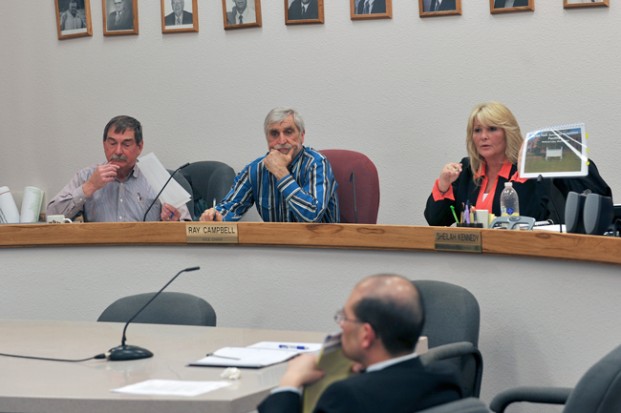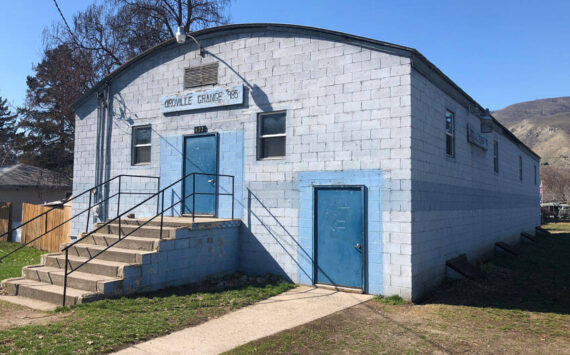Decision means an end to legal action by state against commissioners, county
OKANOGAN – The Okanogan County Commissioners won’t be moving juvenile detention services out of the county, thus ending a legal action brought against them and the county on behalf of the county’s Superior Court Judges and the Juvenile Administrator.


The commissioners made the decision following a Juvenile Detention Presentation held June 14 where they said they learned enough to realize those juveniles in detention were getting the educational and other programs they needed here in the county. Commissioner Jim DeTro stated that he appreciated the information that was presented and wanted people to know the commissioners were not “trying to abandon our kids.” Commissioner Shielah Kennedy said she felt that the information provided was the most the board had received so far and appreciated the efforts. She also said she understood the “importance of our youth and how important the programs discussed were to the community.” Commissioner Ray Campbell said the information provided was tremendous and that he believed “keeping our children here is best,” but other things must also be considered.
“Hopefully the Board of County Commissioner’s decision to keep our detention center open is really based on the merits of the issues involved rather than legalities,” said Okanogan County Superior Court Judge Christopher Culp, about the commissioner’s decision. “We stressed the social aspects, availability of professional services, economical considerations, law enforcement impact and other reasons why youth needed to be kept local instead of transported 140 miles away.”
These are not new considerations and it’s disappointing that we had to spend the time and effort to provide the information that is, and always was, available. The truth is that we have always been better capable of providing quality services to youth for a lesser cost. But now there should be a complete and thorough record of reasons why detention should be kept open.”
Those legalities Culp was referring to concern Washington State Attorney General Bob Ferguson’s appointment of a Special Assistant Attorney to bring legal action on behalf of the Okanogan Superior Court against the county and the commissioners. The Superior Court Judges, Hank Rawson and Culp, along with Dennis Rabidou, Superior Court and Juvenile Department Administrator, sought judicial intervention to stop what they claimed were improper acts by the commissioners that violate the Separation of Powers Doctrine and interfere with the court’s authority and constitutional responsibility. The commissioners’ decision to keep the juvenile facilities here should end further legal proceedings.
Judge Culp said if the commissioners had failed to see the merits of keeping juvenile detention open, then he, Judge Rawson and Administrator Rabidou were prepared to show them they lacked the legal authority to move the services elsewhere. According to Culp, under Washington State law there were basically two ways they could have even considered the matter: First, if the Superior Court agreed to give control of juvenile court and related matters (including detention) to the commissioners; and second, if the BOCC joined a consortium (i.e. Martin Hall) that provided detention services.
“These provisions are contained in RCW 13.40. and are very specific. Neither applied and so our contention at the last meeting was going to be that they lacked the ability to even debate or consider moving. So when (Planning Director) Perry Huston spoke to me before the last meeting started and asked if we could go straight to a discussion of funding I felt that they finally were agreeing, for one reason or another, that the detention center needed to stay open,” said Culp, referring to the June 21 meeting where Culp had planned to explain why the commissioners didn’t have the legal authority to move juveniles out of the county.
When asked about how funding to fix problems with the Juvenile Detention Center building would be found and whose responsibility it was, the commissioners or Superior Court, Judge Culp said, “Interestingly, we never asked for funding for anything related to juvenile detention. This all began as a debate about ‘what’s in the best interests of our youth.’ Now it’s evolved to a funding issue and we don’t really take any position on how to go about that. Certainly the building is aging and, as any homeowner knows, maintenance and upkeep is always necessary. So hopefully the board comes up with some sort of longterm funding commitment.”
A record of who spoke on behalf of keeping the Juvenile Detention in the county, as well as staff reports, can be found at the Okanogan County website, http://okanogancounty.org/Commissioners, in the minutes for July 14, both the Juvenile Detention Presentation and the regular meeting, as well as the meeting of July 21.






